Fall Guys: Ultimate Knockout took the world of battle royale games by storm during its closed beta, hitting more than 5 million hours watched on Twitch alone and becoming the most-streamed game for a majority of its uptime. Now that Mediatonic’s insane little gem is available for everyone to play on PC and PlayStation 4, it is time to get wobbling and try to claim your crown.
The game is a mix of multiple mini-games that pit 60 players against each other to see who can complete every challenge first. Some of the mini-games have players racing across an obstacle course, while others split them into teams to see who can jump through the most hoops before time runs out. You never know just what might happen in a round, especially if you are playing the game live on stream.
Prior to launch, Fall Guys lead game designer Joe Walsh and lead level designer Megan Ralph talked to Gamepur about how the game was made, the decision to use a 60-player lobby, and plans for future content.
Gamepur: Before the beta even released, there was a lot of hype surrounding Fall Guys on the content-creation side of the Internet, and it was an immediate success there. How did potential exposure through streamers and content creators play into your plans surrounding the game’s launch?
Joe Walsh: It’s been pretty insane. Our plan for the game has always just been to drop it and see what happens, but there has been a big focus during development around making sure the game is built to really appeal to streamers and to be really, really watchable. Because it is inspired by game shows, it was really important to us that it felt like you were watching one, if you had been eliminated.
I think that is part of the reason that is why we have seen it do so well on Twitch, because firstly it is the rich and exciting experience from the second it starts, which I think really steps it apart a lot of other games on Twitch where you might have 20 minutes of picking things up on the floor before the thing even starts. Fall Guys just hits the ground running in this really unique, really exciting way.
Each round was also built to be just as good, if not better, to spectate than to play, which I think has been a really big deal. Because even when players are eliminated, they still feel engaged. We didn’t include a commentator in that game to let people commentate overtop of [the gameplay themselves], and I think that is something that will be very exciting to see grow.
Megan Ralph: Yeah, from a [level designer’s] point of view, we tried to approach the levels in a very basic way. We wanted to make them fun to play and fun to watch; we weren’t really thinking on a large scale. We just wanted to make it an experience.
I think that has gone over really well, and we have all been kind of surprised at the amount of coverage it has gotten. But that core concept of making it fun to play in multiplayer and fun to watch is what we focused on.
Walsh: Another thing to note is that when people see all of these big streamers and YouTubers playing the game, people might think we bought the front page of Twitch. We haven’t paid a single streamer to stream the game, everything has been through them reaching out or us reaching out to give them codes. I think that is nice because it feels like there is a really genuine, honest hype about the game, rather than an artificial one.
What made Fall Guys the next move for Mediatonic? Was it your goal to continue the studio’s trend of taking absurd concepts and making them into a fun game?
Walsh: Yeah, something that we try to decide on as a studio is what makes a game a “Mediatonic?” It’s hard to exactly nail, but I think it really has to be a head-turning idea that instantly grabs you and is kind of wholesome while also being quirky and weird. I think those are the things that define us as a studio and the people who work there.
We knew that we wanted to make games that are accessible and bring a new audience to games, bring people joy, exciting things like that. I think Fall Guys came about because we thought of making a battle royale that made you laugh. And quite instantly this slapstick, Saturday morning TV show vibe felt like a very good fit.
Ralph: We are at a really lucky spot with the company because we are focusing more on passion projects and things we want to make, or that are pitched internally like Fall Guys and Murder By Numbers. We will take a pitch made by someone in the company and then try to develop it, as opposed to looking at a larger strategy for the game releases.
Walsh: Right, it wasn’t like we just went down and were like, “Okay, battle royales, what ideas have you got?” It just came out of, “I want to feel what it’s like to be a useless jelly bean on the front of an obstacle course.” That just sounds like a fun game that no one has made. That is the starting point.
Ultimately for these games, you can have all of the marketing spin up, all the hype in the world, but if the game isn’t fun, unique, and exciting, then it is going to be so hard to gain any sort of interest.
You’ve thrown out game shows and Saturday morning cartoons as big inspirations for the core of Fall Guys. What did you take from shows like Takeshi’s Castle and other media when making the game?
Walsh: We really took inspiration from everywhere. For example, Hexagons, one of our final levels, just came about because I was watching a Minecraft tournament and there was a mini-game called TNT Run. I was just like “Oh my God, that is a Fall Guys level.” It has basically been up to us to pull influence from wherever we want.
Ralph: I think you will find that most of our levels have a clear basis on something from real life or a TV show, but we have tried to put our own spin on them. We have tried to take all of these concepts and turn them into something you can’t really do in real life.
Walsh: One thing we tried to do when making the game is we sat down and put Mario on one side of the scale, which is this perfect platformer that feels so responsive and good because Mario is this constant professional who never misses a jump. And then on the other side of the spectrum you have QWOP or Human Fall Flat, where every movement is a challenge. So a big part of the development was figuring out where we land on that scale.
Any chance of a Craig Charles voiceover DLC?
Walsh: If he’s out there and keen! We should definitely @ him on Twitter or something, because it would absolutely make my life if we could get him on Twitch commentating. Whoever owns the Takeshi’s Castle IP, we should collab.
What made you decide on 60 players rather than some other number?
Walsh: We had it working with 100 players and played a couple of games with it like that. It was just too insane, and you would lose all sense of what was going on. We tried playing 20 and 30 players because for a while, when the team was smaller, it was hard to get the numbers in to play and test the game.
We often found that when we played at 60 and then asked someone how many players they thought they were playing with, they thought it was 100 anyway. We did playtests like that, where we wouldn’t even tell people. We found that 60 gave us the right level of chaos.
Ralph: Designing levels for 60 players rather than 100 changes a lot, like the width and stuff like that, which can seem a bit excessive. And also, with our game, all of the players start in the same area, while a lot of other battle royales might have a 100 players but they will be spread out all over the place.
We found that 60 was kind of the middle ground between not being too chaotic but still giving you that feeling of playing with a big group of people. That and it improved the performance of the game as well, and cut down matchmaking times.
What were some aspects of the game that you had to work everything else around, or that you had to scrap several times to get it working the way you wanted for the final release?
Walsh: I think the first one was how the grab mechanic works. Originally we had the right and left hands work separately, and you could grab two things at once, because we thought the game was going to be much more about picking things up and putting things down. But then we realized that when the character rotates towards you, suddenly the hands would swap, and it became this really weird game of trying to memorize which hand was which. It just started to get very distracting. And the other would have been the camera stuff.
Megan: Yeah, the camera control really changed a lot through the design. We wanted it to be fixed camera position, and it would simply track you around through arenas or stay in one position for races. Which was nice, in a way, for accessibility, but we realized we could just do so much more with a free movement camera.
That has been a big win because it hasn’t really affected how people play the game, but it lets us develop more levels that have a focus on 360 views now. We can create arenas where you don’t just have to face everything from one direction, you can have high bits and low bits all over the place.
What are your plans for supporting Fall Guys moving forward? Do you plan to focus on adding new levels and mini-games, or is there more coming post-launch?
Walsh: One thing that is great for us is that we don’t have to create these huge levels to create new content for the game. Because we have these mini-games, we have the ability to serve up packs of mini-games that we can drop at any given time. I think that is really what the plan is, just for us to increase that grab-bag of mini-games post-launch and make it so a year on, Fall Guys has two or three times as many levels as it did at launch.
Ralph: We are planning to do a bunch of different level stuff, so it will be brand new levels with completely different goals all the way through to different maps with the same level types. We are going to try to keep the old levels fresh while we introduce the new levels, which will be dropping as seasonal content pretty regularly after launch.
Walsh: And then alongside that, we are also going to have new costumes, new free battle passes for everyone to race through, and overall just give players more options to customize their character.
We also want to continue adding new features. We hear the playerbase loud and clear that they want more interesting ways to play as a team. Things like crossplay we hear a lot. So we are looking to drop new, exciting features that will give people new ways to play the game along with the new content as well.
If you walked into a room of people who have never heard of Fall Guys and you had to give them a short pitch to sell them on playing your game, what would it be?
Walsh: I think for me it would be: Do you remember that feeling of playing a battle royale and then dying after 20 minutes of picking up weapons? And you wanted to have an amazing time from the second the claxon goes off at the beginning and laugh when you fail while playing a multiplayer game that is full of joy and wholesome fun? Then Fall Guys sounds like the game for you.


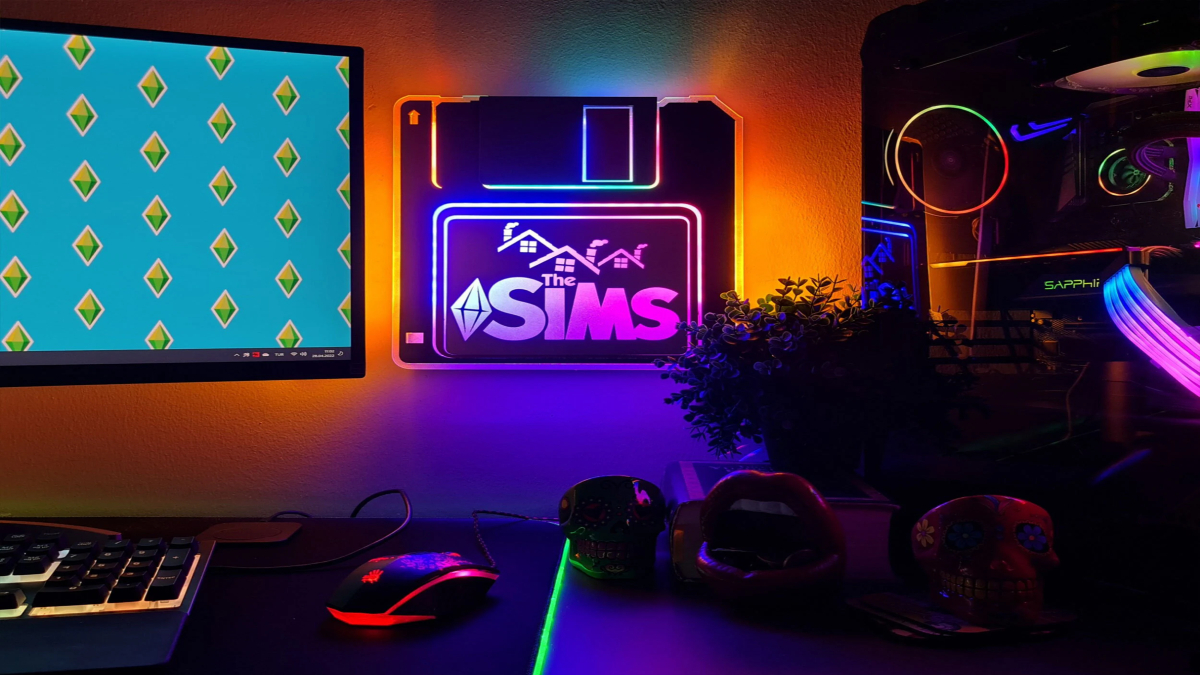
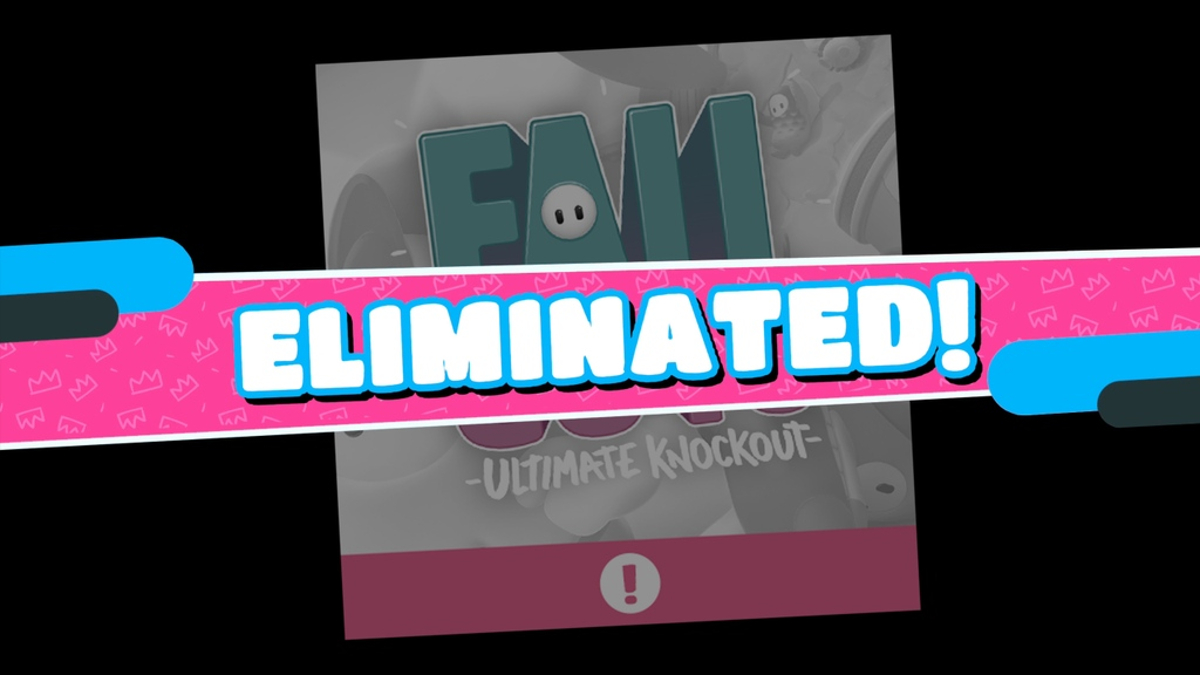
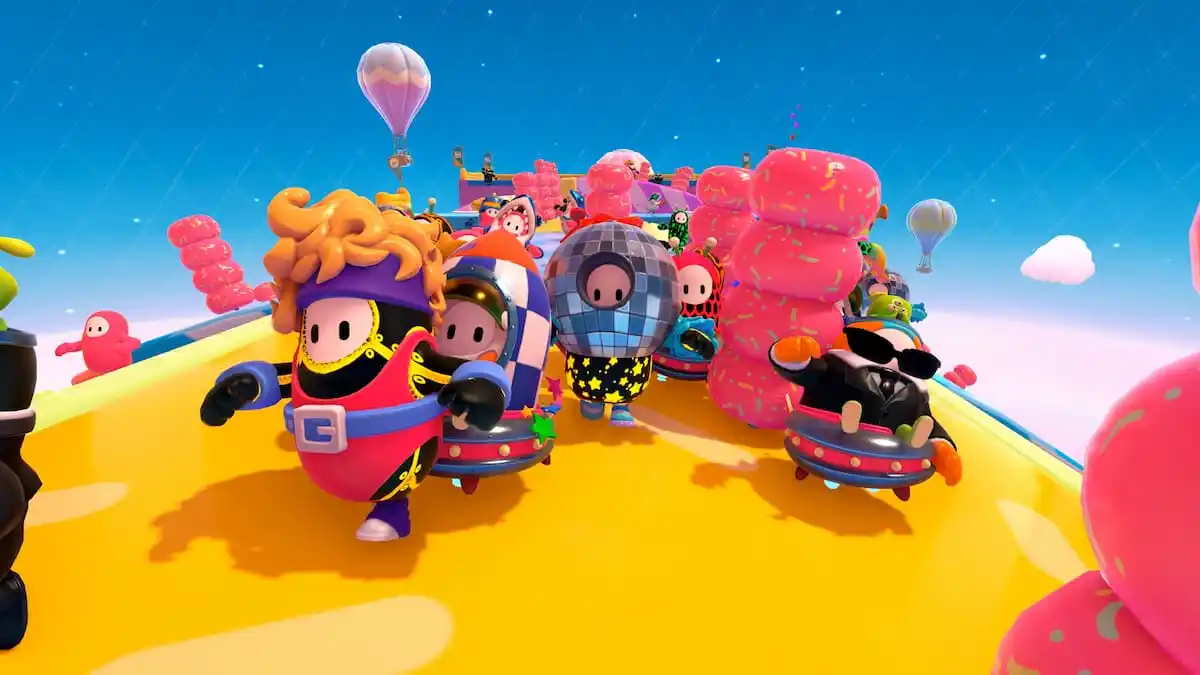
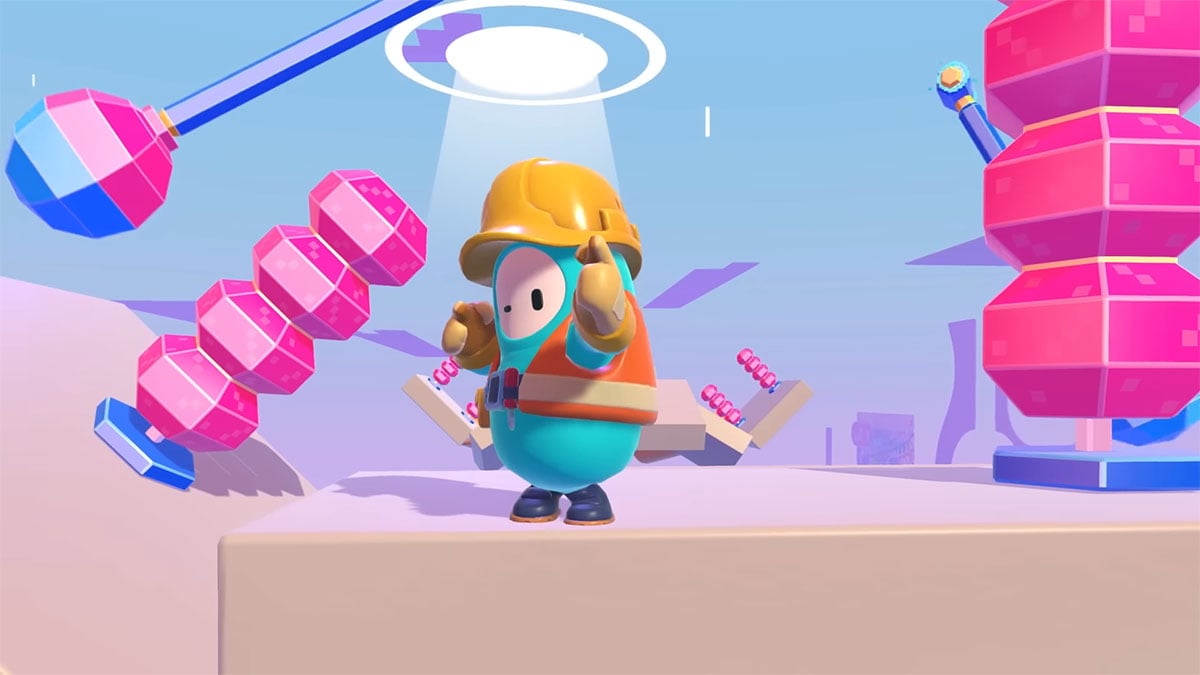
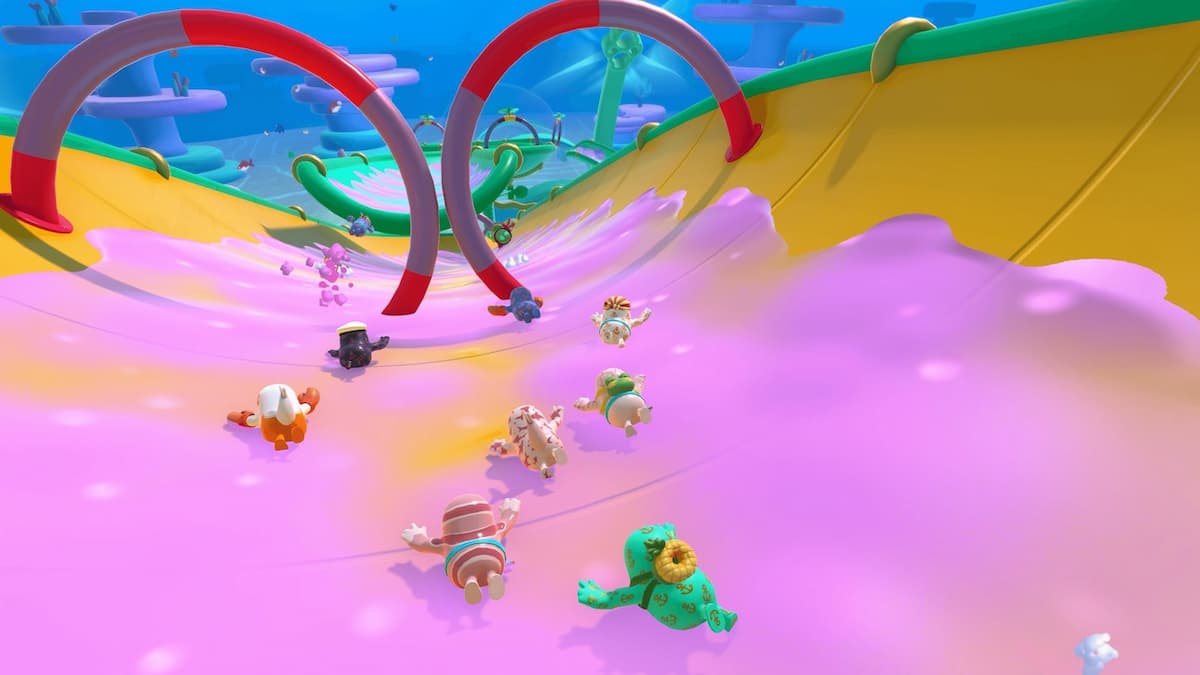
Published: Aug 4, 2020 04:30 pm